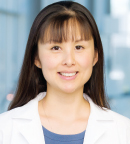The most common reason that patients with cancer do not tell their physicians about using complementary and alternative medicines is that their physicians do not ask, according to a nationwide survey.1 Among 3,118 survey participants who reported a history of cancer, 1,023 (33.3%) had used a complementary and alternative medicine, such as herbal supplements, yoga, or mindfulness/spiritual meditation, but 29.3% of those patients did not disclose this use to their physicians.1
In addition to physicians not asking about the use of these therapies, cited by 57.4% of patients, the other common reason for patients not disclosing their use of these therapies was that patients did not think physicians needed to know. However, physicians do need to know, because of the potentially serious implications of using complementary and alternative medicines, Nina N. Sanford, MD, lead author of a research letter reporting these survey results, told The ASCO Post. Dr. Sanford is Assistant Professor of Radiation Oncology at UT Southwestern Medical Center, Dallas.
Herbal supplements “could potentially interfere with how some medications are metabolized and with the efficacy of chemotherapy,” Dr. Sanford stated. She recommends that patients avoid using supplements during radiation therapy because “with radiation specifically, there is concern that high levels of antioxidants could make radiation less effective.”
Talking With Patients
Not all patients understand the term “complementary and alternative medicines,” Dr. Sanford noted, so it may be necessary to explain it and provide examples. In her practice, Dr. Sanford asks the nurse who usually reviews medications with patients also to ask if there is anything else they may be taking that is not on this list, such as additional vitamins or antioxidants.
Physicians should also ask patients, Dr. Sanford emphasized. The first thing to ask patients is “Do you use complementary or alternative medicines? Is this something you would like to discuss?” With this approach, physicians can filter out patients who really have no interest in them or do not use them. And then it provides an opportunity for patients who do use them to elaborate further.”
Finding the Time to Ask
A less frequently cited reason physicians gave for not asking patients about the use of complementary and alternative medicines was the lack of time, with conversations about patients’ prescribed therapies often taking precedence. Certainly, there are many other issues that need to be addressed during appointments and honestly, the use of complementary and alternative therapies “sometimes does not make it onto the list,” Dr. Sanford acknowledged.
Whether questions about complementary or alternative medicines need to be asked at every appointment or less frequently is a patient-by-patient decision, in Dr. Sanford’s opinion. “One possible option is to include a question on these integrative therapies on the paperwork patients need to fill out before they see us; this way, the topic is systemically included in the appointment to make sure it is not missed.” ■
DISCLOSURE: Dr. Sanford reported no conflicts of interest.
REFERENCE


